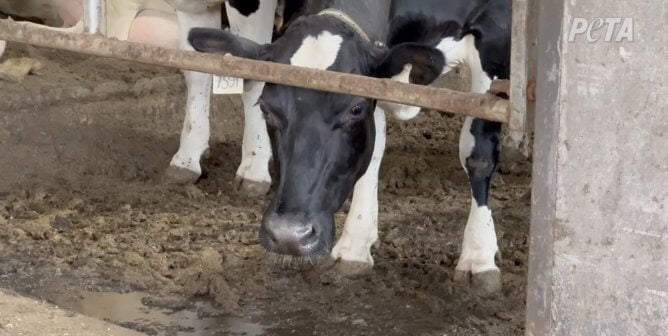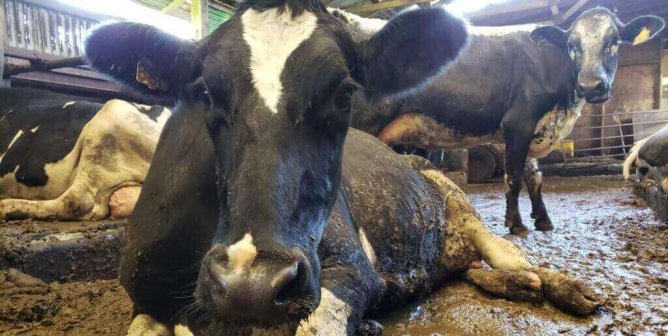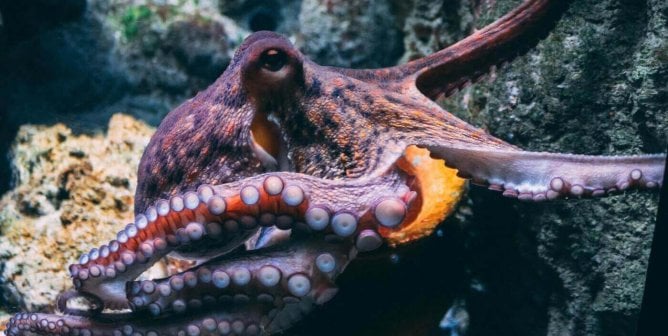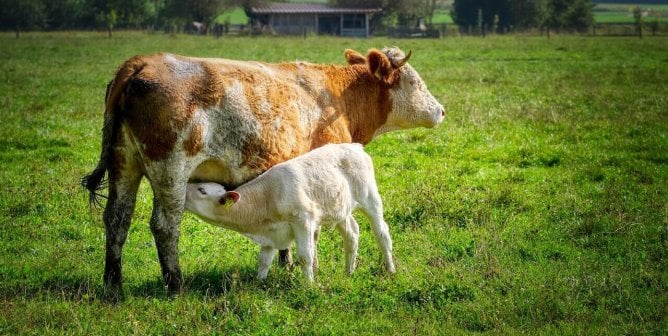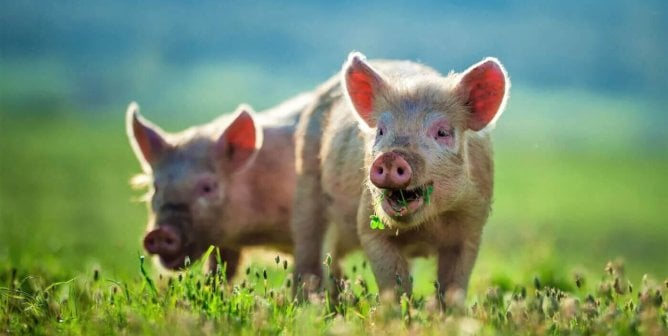Foie Gras: Cruelty to Ducks and Geese
At a farm near Montréal that is owned by Palmex, Inc.—which is a brand of the world’s largest foie gras producer, Rougié—PETA documented ducks lined up in rows of iron coffin-like cages that encase their bodies like vises. The birds’ heads and necks protrude through small openings to make the force-feeding easier for the human workers. The birds can do little more than stand up, lie down, and turn their heads. They cannot turn around or spread a single wing.
Similar conditions have been documented on some of the largest French foie gras factory farms. Even minimal changes to cage-size requirements have some French companies considering moving production to China, where there are no laws to protect animals from cruelty and where foie gras production is increasing.
Foie gras is so cruel that California has banned its production. (The ban on in-state production remains in place while legal battles continue over whether California can also ban the sale of foie gras.) Force-feeding animals is against the law in many countries, including Israel, Germany, Norway, and the United Kingdom. India has banned the importation of foie gras, meaning that it cannot legally be sold anywhere in the country.
What You Can Do
Join Kate Winslet, Roger Moore, and countless others around the world in refusing to eat foie gras. You can even take a bigger step by giving up all animal products. Take PETA’s Pledge to Be Vegan for 30 Days, and we’ll send you our top tips on the best places to eat out, our favorite recipes, info on the tastiest animal-friendly snacks, and suggestions for the most delicious prepackaged cruelty-free meals. You can also join PETA’s Action Team to receive alerts about any foie gras–related demonstrations in your area.


